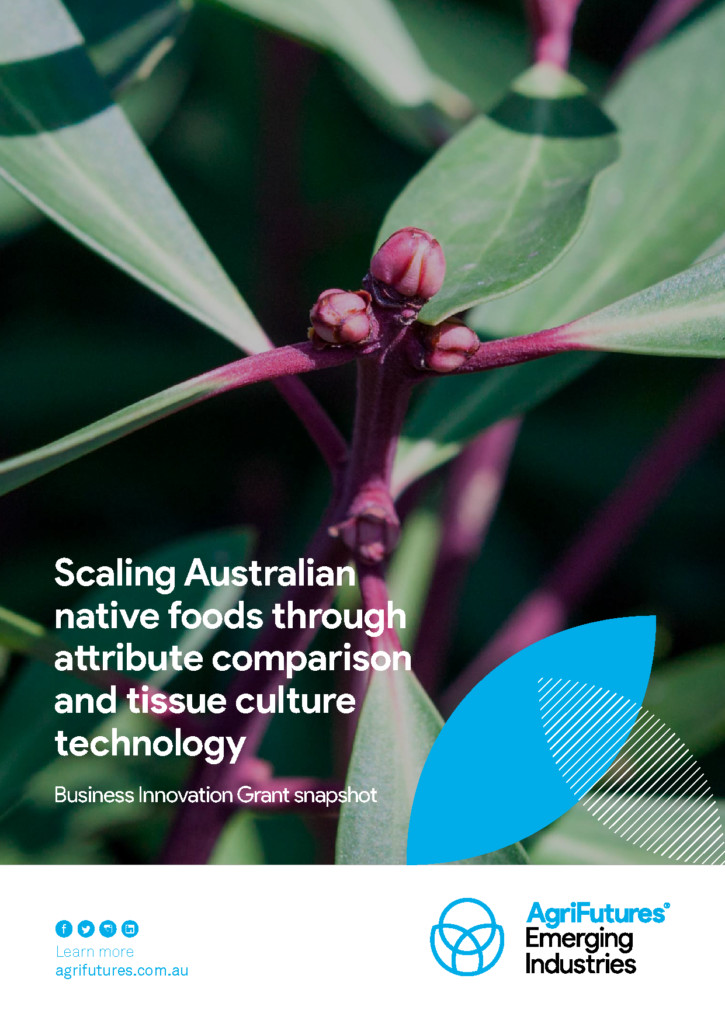Impact case study: Hazelnut investments give confidence to new growers
Australia’s peak hazelnut industry body says the number of growers in Australia is steadily increasing, as ongoing research and development efforts give potential new entrants...

6 pages
Published: 27 Feb 2024
Author(s): Hayden Marks
Download report PDF
DownloadInconsistencies in the quality of native foods is a substantial issue, costing the supply and value-added industries a minimum $15 million per annum in lost revenue. Poor seasonal supply and difficulties in cultivation cause suppliers to have sporadic product availability, leading to frustration in the market.
The objective of this project was to directly target tissue culture as a way of creating consistent plants that can be scaled en masse to meet projected international demand, resulting in rapid industry growth. Five species were targeted: old man saltbush (Atriplex nummularia), Warrigal greens (Tetragonia tetragonioides), karkalla (Disphyma crassifolium), river mint (Mentha australis) and mountain pepperleaf (Tasmannia lanceolata). Seed-grown plants have large discrepancies in plant quality, leading to major losses for primary producers.
This project conducted a comprehensive comparative analysis of plants sourced from diverse provenances, unveiling possible genetic uniformity across populations, while the successful implementation of tissue culture emerged as a transformative approach for enhancing plant propagation.
While striving to secure the intellectual property rights of these plants in collaboration with Aboriginal and Torres Strait Islander communities, a crucial observation was made. The intricacies of this process necessitate more extensive and inclusive consultations to honour the cultural significance and ownership of these botanical resources; this was not able to be achieved in this project.